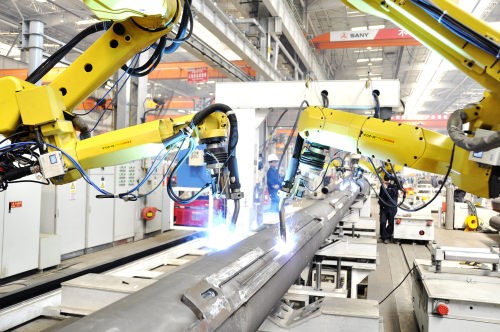
China’s manufacturing sector logged its weakest growth in more than a year in July, largely due to a fall in new orders, survey data published by IHS Markit showed on Monday.
The Caixin general manufacturing purchasing managers’ index (PMI) dropped to 50.3 in July, from 51.3 in June. The reading was below economists’ forecast of 51.0.
Although a score above 50.0 indicates expansion in the sector, the index signalled the slowest growth for 15 months.
According to the official survey data, released at the weekend, the manufacturing PMI fell to 50.4 in July, from 50.9 a month ago.
The non-manufacturing PMI came in at 53.3, down from 53.5 in June.
New business dropped for the first time in 14 months in July as higher factory gate prices dampened customer demand, survey data from IHS Markit revealed. New export orders rose only slightly as the pandemic continued to hinder sales overseas.
Output growth softened for the third month in a row. The latest increase was the slowest seen for 16 months. Supply chain delays persisted in July, with average delivery times for inputs increasing solidly, the survey showed.
Employment levels were little-changed in July, after a slight uptick in payroll numbers in June.
On the price front, the survey showed that inflationary pressures softened in July. Input prices rose at the weakest rate since November 2020. The rate of output charge inflation likewise slowed in July, with selling prices rising only slightly overall.
Manufacturers were generally optimistic that output would increase during the next year. However, the level of confidence slipped to a three-month low in July.
The latest survey readings reinforce the assessment that the economy will tread water during the second half of the year, Julian Evans-Pritchard, an economist at Capital Economics, said. Although this would mean a faster slowdown than most anticipate, it should not be cause for alarm given how strong activity has been recently.
